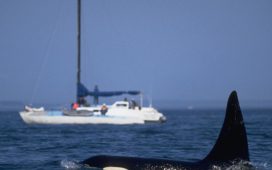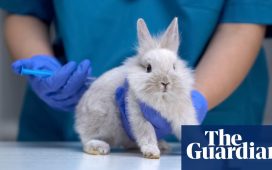- A group of animal activists are celebrating a small victory after the City of Cape Town decided to return Kataza the baboon to its home in Slangkop, Kommetjie.
- The City had relocated the beloved Cape chacma baboon to Tokai to monitor and track its movements.
- The baboon was relocated to Tokai after the City’s service provider conceded they were unable to manage Kataza in Kommetjie and submitted two applications to euthanise the baboon.
There was a celebratory mood in Tokai, Cape Town, on Saturday as a group of “baboon angels” huddled around a mobile phone to hear Ryno Engelbrecht announce that the City of Cape Town had acceded to his demands and that Kataza the baboon would be returned to its home range on Slangkop, Kommetjie.
The group had been protecting the beloved Cape chacma baboon for 75 days.
The “baboon angels”, a group of animal activists determined to protect the baboon from the urban hazards of Tokai, have been diligently monitoring and tracking it since its relocation from Slangkop to Tokai by the City in August.
Kataza was relocated after the City’s service provider, Human and Wildlife Solutions (HWS), conceded they were unable to manage the baboon in Kommetjie and submitted two applications to kill (“euthanise”) it, both of which were rejected.
In October, Engelbrecht launched an application in the High Court in Cape Town, accusing the City of animal cruelty in terms of the Animal Protection Act and challenged the City’s legal authority to manage wild animals.
In court papers, Engelbrecht demanded the removal of a GPS collar and ear tags, which had been fitted to track and identify the baboon, and its return to its home range on Slangkop. The GPS collar and ear tags were removed days after filing the application, but there was no indication the City would return Kataza to Slangkop.
Instead, the City insisted the chacma baboon was successfully integrating into the Tokai troop, but this was dismissed by the “baboon angels”, who daily monitored and tracked the baboon through Tokai.
The City initially opposed the application, but the legal battle took a dramatic and unexpected turn on Friday when the City’s legal counsel requested a meeting with Engelbrecht’s counsel and offered to settle.
The agreement confirms “the City intends relocating it to the Slangkop troop… as soon as practically possible” and that “if it needs veterinary attention, it will be provided”.
Engelbrecht agreed to withdraw the application “once SK11 has been released within the Slangkop troop home range”.
The settlement is an embarrassing defeat for the City’s Mayoral Committee Member for Environment Marian Nieuwoudt, who had insisted Kataza was integrating into the Tokai troop.
Public outrage
Kataza’s relocation sparked public outrage and a petition by more than 30 000 signatories calling on Nieuwoudt to return the baboon to Slangkop.
It also has implications for the City’s policy of relocating adult male baboons and future “relocations” of chacma baboons, which are increasingly confined to smaller isolated pockets around the peninsula. Most chacma baboons relocated to another troop end up dead – killed by the adult males of the troop it was moved to or killed by the City for being raiding baboons when not accepted into the troop.
The baboon angels set out to ensure that Kataza would not come to any harm, organising themselves into daily shifts, seven days a week.
While very happy with the settlement, Engelbrecht said he would be seeking legal counsel about the possibility of a further application to review the City’s baboon management guidelines, which are considered by many to be inhumane.
The High Court application was also brought against Cape Nature, who issues “non-transferable” permits to HWS, to manage the baboon on behalf of the City; and against South African National Parks (SANParks), as the baboon troops of the peninsula originate from the Table Mountain National Park (TMNP).
SANParks did not oppose the application and Cape Nature filed a notice to abide by an “explanatory affidavit” from executive director Dr Ernst Baard, who claimed the decision to relocate Kataza had been made by Julia Wood.
A letter from the City’s attorneys, Cluver Markotter, later confirmed “the decision was made jointly” by Julia Wood, Dalton Gibbs, Dorothy Breed and Owen Wittridge, employed in the City’s Environmental Management Department.
Linden Rhoda, director of the City’s current service provider Nature Conservation Consultants (NCC), said he had been advised of the settlement by Wood at about 17:30 on Saturday, but had not received any instruction to capture or relocate Kataza.
Nieuwoudt was not available for comment.















